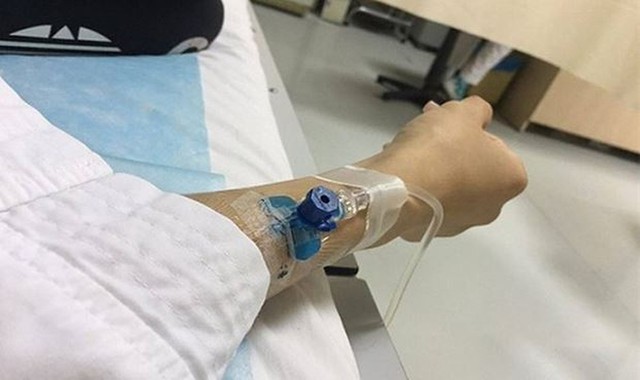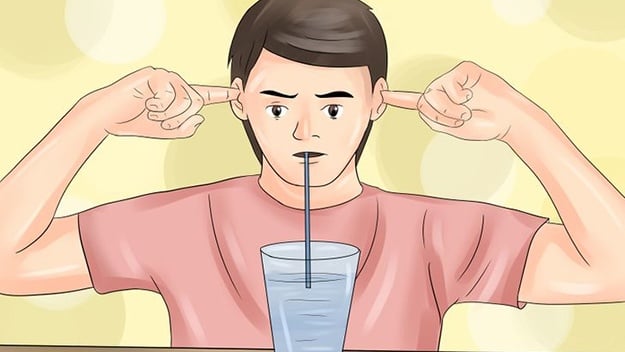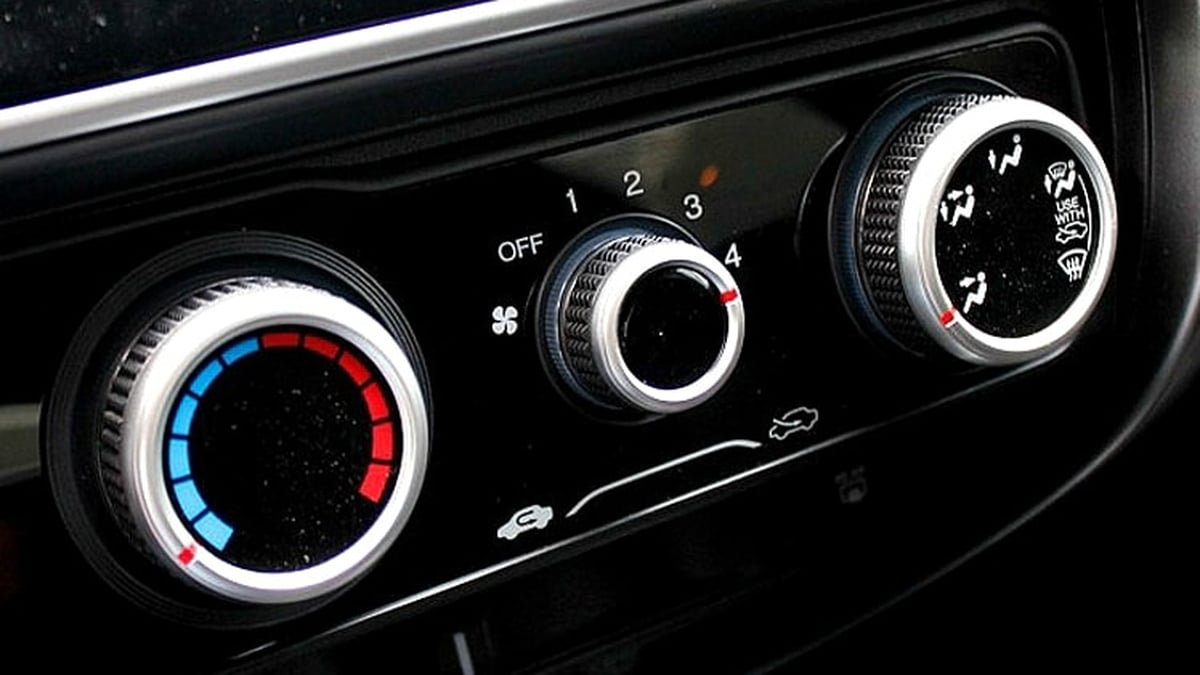Mr. TVD (67 years old, Ho Chi Minh City) was admitted to the emergency room with continuous hiccups, severe headache, and fatigue...
Mr. D's relatives said that for the past 3 days, he had been hiccuping from 1am to 6am, often talking nonsense, and waving his arms and legs while his eyes were still open. He complained of severe headaches, and his family was worried that this condition might be related to a stroke, so they took him to the doctor.
After examination and testing, the doctor discovered that he had severe hyponatremia, down to 108.72 mmol/L (normal index is 136 - 145 mmol/L). Master Doctor Hoang Thi Hong Linh, Department of Endocrinology - Diabetes, Tam Anh General Hospital said that blood sodium falling below 120 mmol/L is considered severe hyponatremia.

Illustration
The doctor said that Mr. D. had hyponatremia due to the side effects of diuretics used to treat blood pressure. Diuretics increase sodium excretion, causing hyponatremia. In addition, Mr. D's hyponatremia is also related to other factors such as age, poor diet, etc.
Hyponatremia disrupts the function of the central nervous system or the vagus/phrenic nerves, causing persistent hiccups. If not treated promptly, the patient is at risk of seizures and cerebral edema.
Mr. D. was given sodium supplements, had his blood test results monitored daily, and his blood pressure medication was changed to a more appropriate one. After 3 days of treatment, his hiccups stopped, he no longer talked delirious, he slept well, and was discharged from the hospital.
Beware of the causes of prolonged hiccups
Persistent hiccups occur when the condition lasts more than 48 hours. At this point, hiccups can be an indicator of central nervous system-related diseases. The nervous system is stimulated, causing abnormal movements of the diaphragm, leading to persistent hiccups.
Common causes of chronic hiccups include:

Illustration
Injury to the nerve connected to the diaphragm
Factors that damage the vagus nerve that controls the activity of the diaphragm include: ear - nose - throat inflammation, goiter (enlarged thyroid gland), gastroesophageal reflux disease (GERD), stomach pain, digestive disorders (bloating, intestinal obstruction, esophagitis, gastric - duodenal ulcers),...
Central nervous system damage
Damage to the brain or spinal cord also leads to loss of body control causing hiccups, for example: encephalitis, multiple sclerosis, stroke, traumatic brain injury, hydrocephalus, neurosyphilis (complication of syphilis), brain tumors, etc.
Metabolic disorders in the body
Alcoholism, diabetes, liver and kidney disease, electrolyte imbalance, Parkinson's, arteriovenous malformations, etc.
Side effects of the drug
Barbiturates, steroids, sedatives, or cancer and chemotherapy drugs also cause persistent hiccups.
4 simple ways to cure hiccups at home

Illustration
Drink water constantly
Although it is a folk remedy, this method of curing hiccups is applied by many people because of its effectiveness. This is because drinking small sips of water continuously will help the diaphragm stop spasming.
Take a deep breath
Deep breathing cures hiccups by tightening the diaphragm during exhalation and preventing the muscle from contracting.
Cover your ears for 20 - 30 seconds
When you cover your ears, the vagus nerve is stimulated, which controls the expansion of the diaphragm, thereby curing hiccups. You can cover your ears and rotate your fingers rhythmically, avoiding pressing hard which can cause ear pain.
Stick out your tongue
The mechanism of this hiccup cure is similar to the method of covering both ears, which stimulates the vagus nerve and reduces diaphragm spasms.
Signs of hiccups that require a doctor's visit
According to medical experts, hiccups last less than 48 hours. Most hiccups can go away on their own in a short time without any intervention.
However, chronic hiccups, specifically those lasting more than 48 hours, may be a sign of an underlying medical condition. In this case, you should seek medical advice for appropriate treatment.
Source: https://giadinh.suckhoedoisong.vn/nguoi-dan-ong-67-tuoi-o-tp-hcm-bi-ha-natri-mau-nguy-kich-vi-bo-qua-dau-hieu-nac-cut-172240530114744998.htm




















































![[Maritime News] More than 80% of global container shipping capacity is in the hands of MSC and major shipping alliances](https://vphoto.vietnam.vn/thumb/402x226/vietnam/resource/IMAGE/2025/7/16/6b4d586c984b4cbf8c5680352b9eaeb0)













































Comment (0)